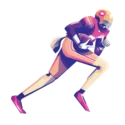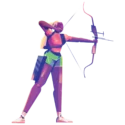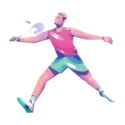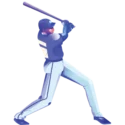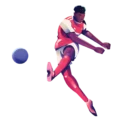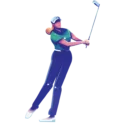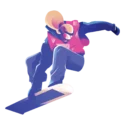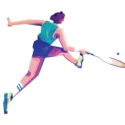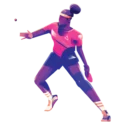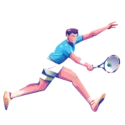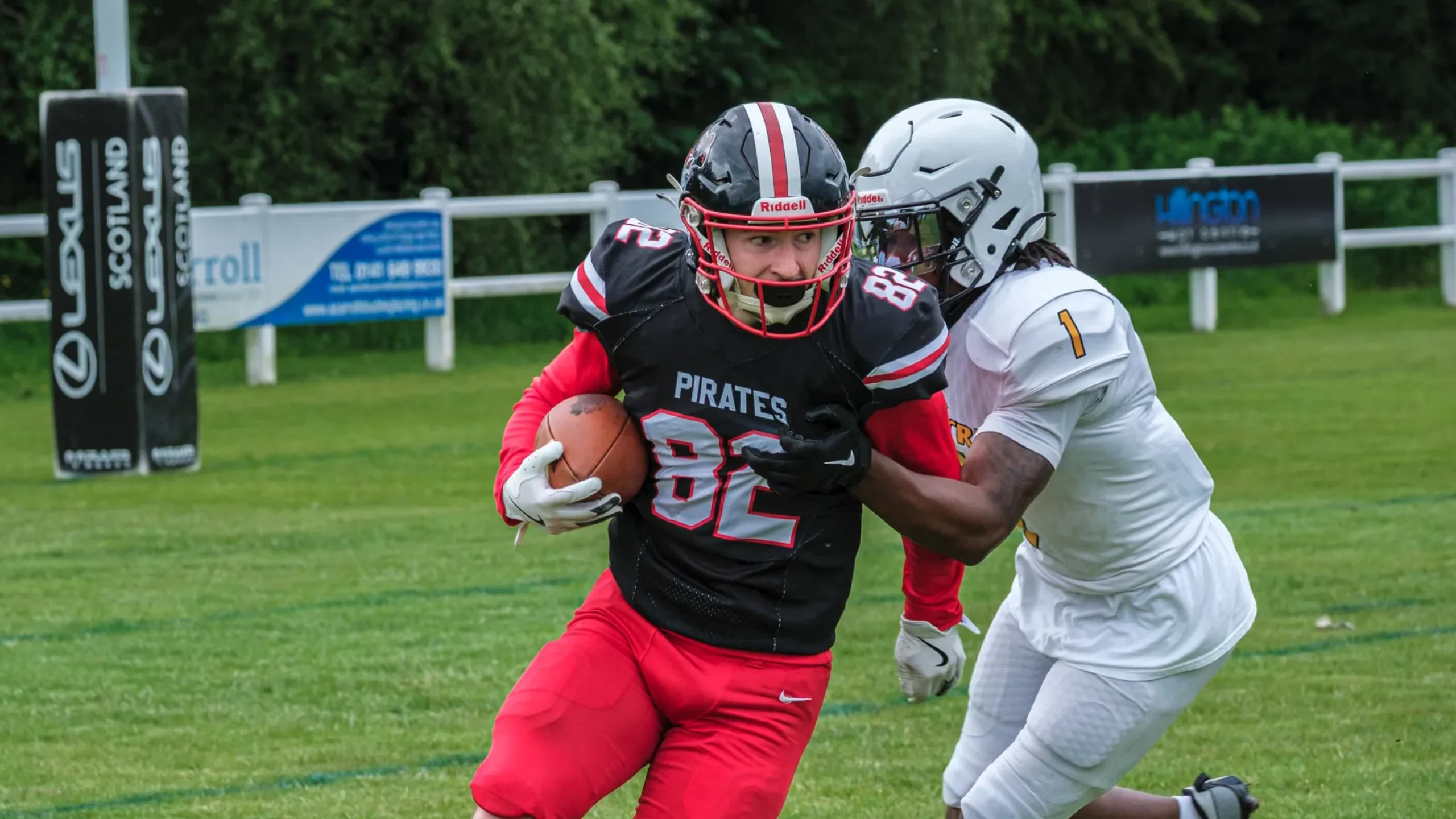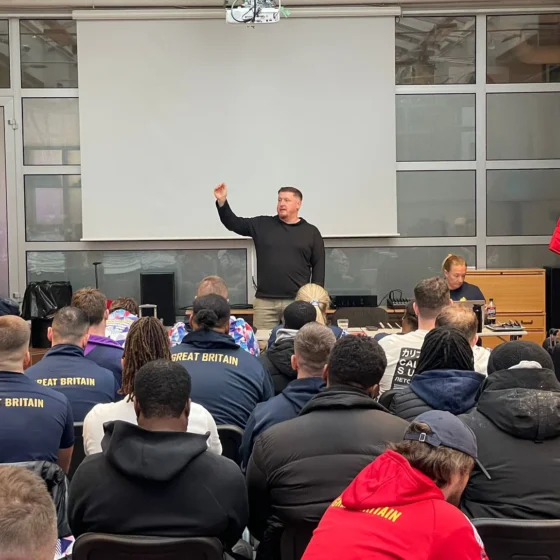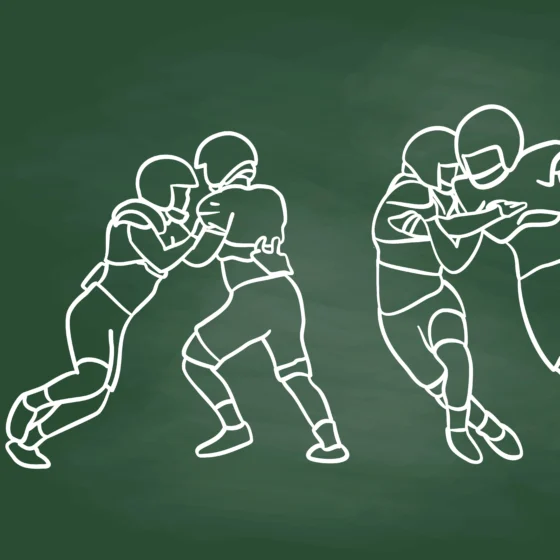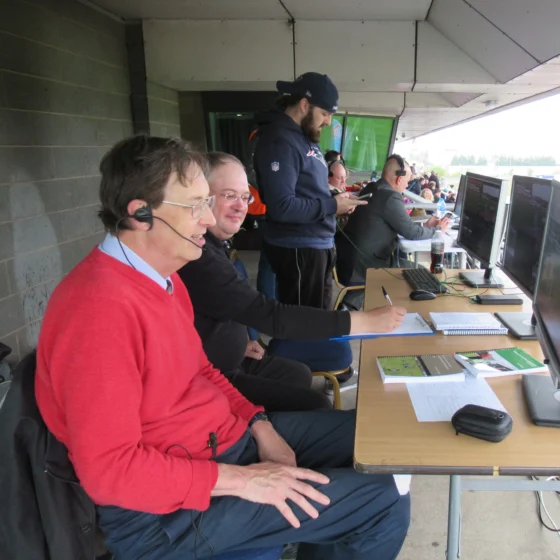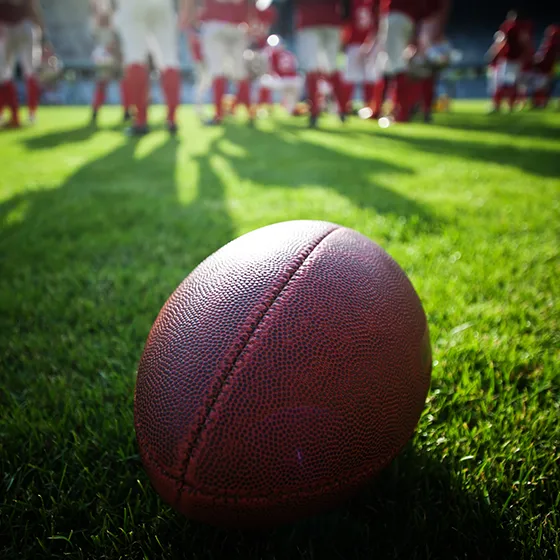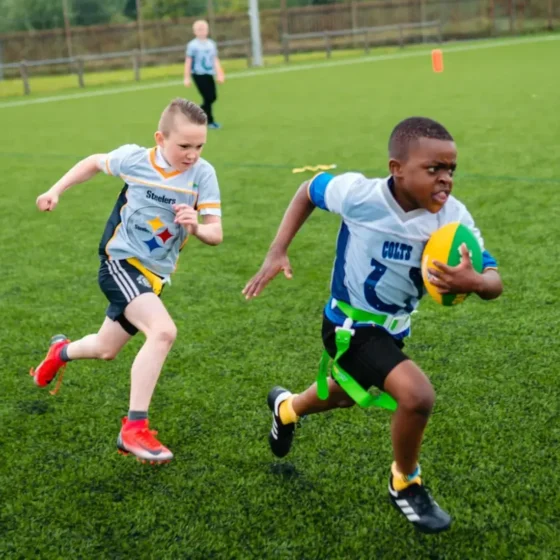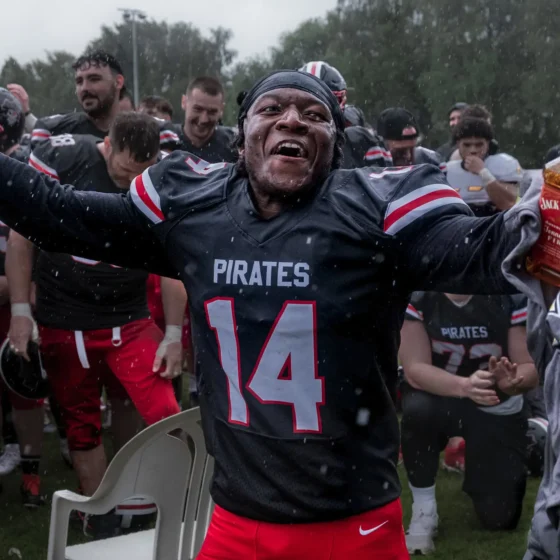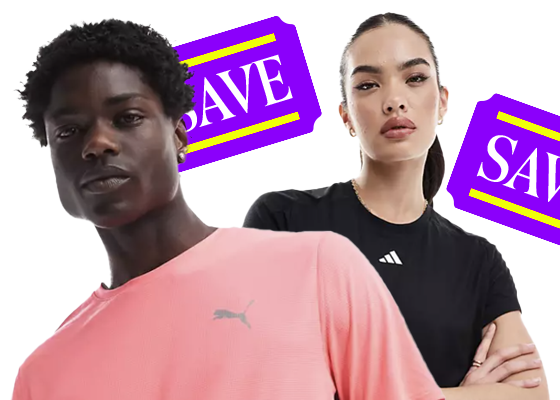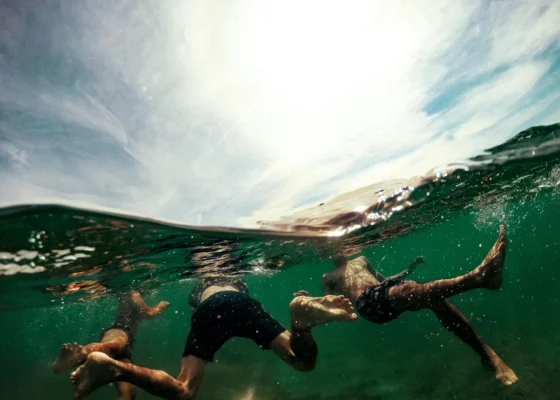Amanda McDonald has been a key figure at East Kilbride Pirates for over 16 years. Despite initially knowing very little about the sport, she began helping out the Pirates in 2008. Within three years, she’d become club chair. As part of our Matchday series, she describes the exciting goings-on and talks us through a typical game day at Scotland’s leading American Football team.
The oldest club in Scotland
It’s our 40th anniversary this year. We’re one of the oldest clubs in the country, us and the Birmingham Bulls. People still talk about the days of the Budweiser League, when they played on spray-painted green concrete!
One of the really lovely things is we’re seeing second-generation players now. Some of our coaches’ kids are involved. And now we’re seeing some of those kids having kids themselves. So it’s a real generational thing.
A family thing
For the last few years, we’ve done a picture every Father’s Day, of some of our coaches and their sons over the years. Which is really nice. When we started our first youth team back in 2010, I had a picture that sat in my kitchen of the first youth squad. Some of those 13-14-year-old kids are now married, have their own children, and they’ve gone all the way through the club. They’re now maybe a coach or a player that’s actually been playing for 15 years.
And sometimes we see people retire from the club for a bit when they have kids, but then they’ll come back years later. They’ll bring their kids to play flag football while they coach or do something else. It’s a close-knit community. We do anonymous surveys every year, and we ask people what the club means to them. The majority of the responses are that it’s a second family. To me, that’s a really big thing.
An unexpected baptism
I got involved in American Football back in 2008 in a very roundabout route. I didn’t watch the game, wasn’t interested in the game, and knew nothing about the game.
But I used to work for the RBS group and we had a graduate on placement with us, a guy called Matt Davies (who is now East Kilbride’s head coach). He was the chair of the East Kilbride Pirates and he spoke so passionately about the club. The placement he was on was internal communications, which was the team that I was in. In 2008, social media was in its infancy. It was the days of MySpace, so Facebook was quite revolutionary. I helped him set up the club’s Facebook page and helped to get him in the local press with a good hook and a story to tell. I got them on STV before I’d even been to see a game, but the more I got to meet the people and learn about the personalities the more interested I became.
So I went along and watched the game. I didn’t know what was going on, but it became quite captivating and the people were really welcoming. I got more and more sucked into it. Then Matt offered me a role on their club committee, in media and marketing. And 18 months later he stepped away as chair and asked me to take over.
At that point, it was one adult team of about 35-40 people. We were just talking about starting a youth setup. And now we’ve got eight teams and about 250 people in the club. We’re a big club in 2025, with a full pathway from age seven.
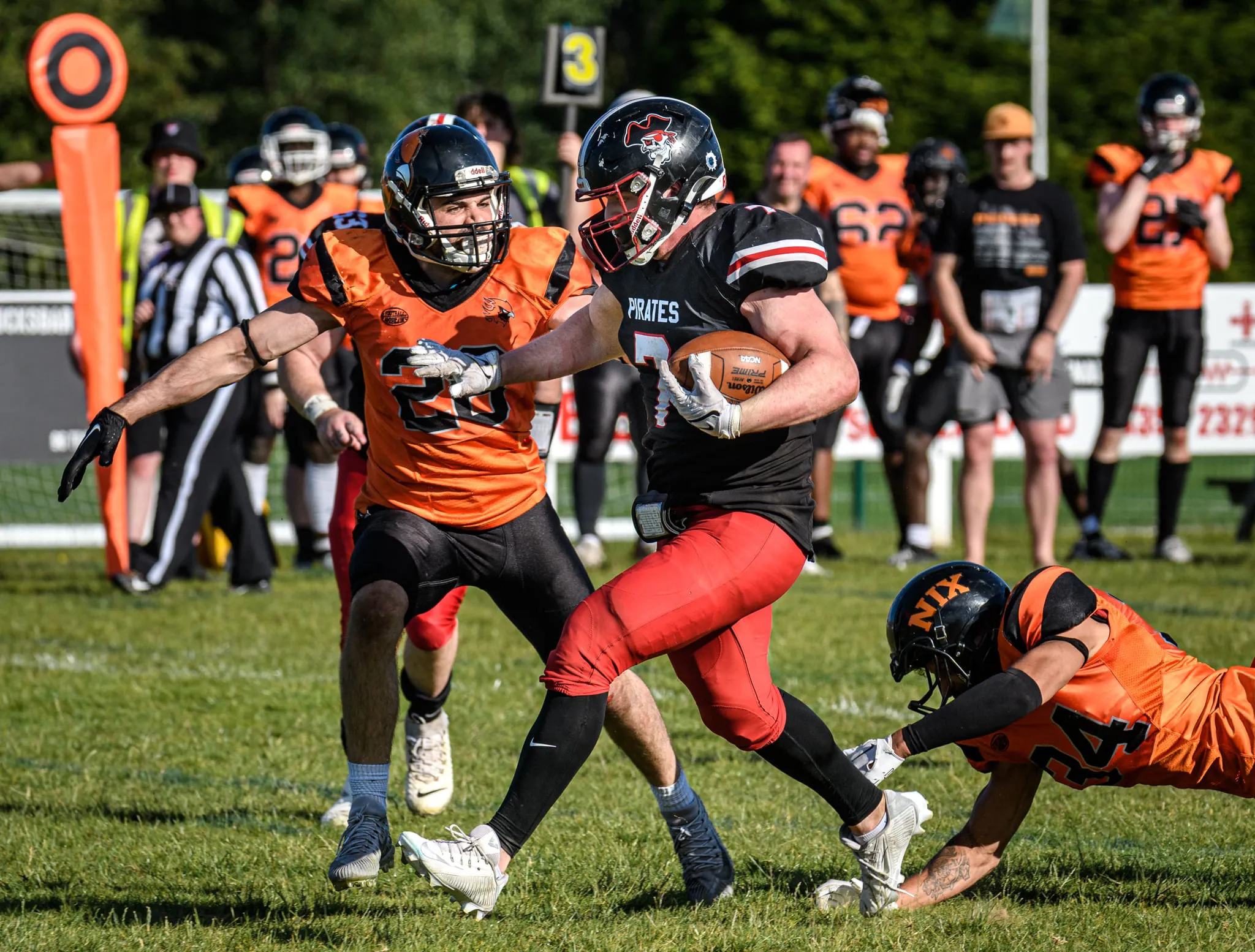
Double headers
On a typical big game day for us, we’ll have our under-19s kick off first. It’s free to come and watch so it’s a big family event with most of the parents and family members coming to support the players.
They usually kick off at noon, and then our adults at about 3.30pm, or as soon as the kids finish playing. We charge entry for our senior games. It’s usually Sunday afternoons between April and August, so it’s a nice day out in the sun. Come and have a drink. Have a hot pie from the stand. Buy a t-shirt, listen to the commentary. Hang out with your friends. We’ve got a covered stand so people can sit and enjoy the game regardless of the weather.
We normally get 300-400 along for a really good game. We try to make it very family-friendly. People bring their dogs, people bring their kids. It’s lots of people that are involved in the club or from the surrounding neighbourhood, or who just watch American Football. We advertise it quite a lot, and we do get people coming along who’ve nothing to do with the club, they’ve not just come to watch someone they’re related to.
Canadian commentary
We’ll have a game-day commentator who’ll explain the game and describe what’s happening. His name is Ian Cochran, I can’t tell you his nickname as it’s not family-friendly! He sits up at the back of the stand and we have a big speaker so he talks through the game. We hand out team sheets at the gate, so people know who’s playing and what number
Ian’s Canadian and he’s been doing it for a while. He used to play in the CFL (Canadian Football League) back in the day, and he was an import player over here. He’s married to a Scottish girl and stayed over here. There’s nothing quite like having that North American accent.
One of the big reasons we try to always have a commentator is because if your kid plays and you’re dragged along to it, we want them to have a good time. We want them to have a nice place to sit and something to eat at half-time. We have a pitchside bar. We have a merchandise stall. We actually try to make it a game-day experience.
The Ultras
We have a supporters branch that call themselves the ultras. When you come to our games you’ll see our ultras sitting there shouting, banging drums and anything that makes noise, they’ll be shouting. They’re big personalities.
We’ve got a lot of family members involved. We’ve got one dad and one granddad that assist our team. Kerr comes along and helps as a sort of general manager of our adult team. He helps me with all the admin and the coaches to set things up. And we’ve got a guy called Eddie, whose grandson is one of our players. Eddie looks after our kits. He’s the one that we’ll send knocking on someone’s door to get their helmet back at eight in the morning. So he’s quite a character.
They’re the glue that holds a lot of what we do together. We couldn’t do it without the support of the families. If you come on one of our game days, the first people you’ll meet on the gate will be mums or sisters or girlfriends of the players. The person that you buy a t-shirt from will be, you know, the auntie of our offensive coordinator. One of our coaches’ wives will try and sell you cake in our fundraising stall. Someone else’s mum or brother will be selling you raffle tickets. We could only do a fraction of what we do and we’ve only lasted as long as we have because of that community.
